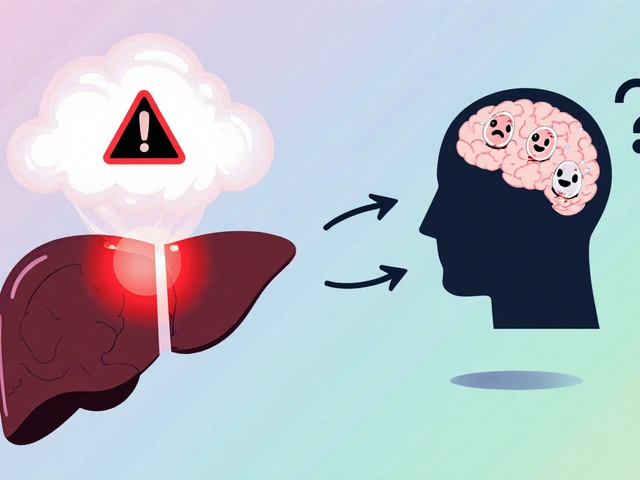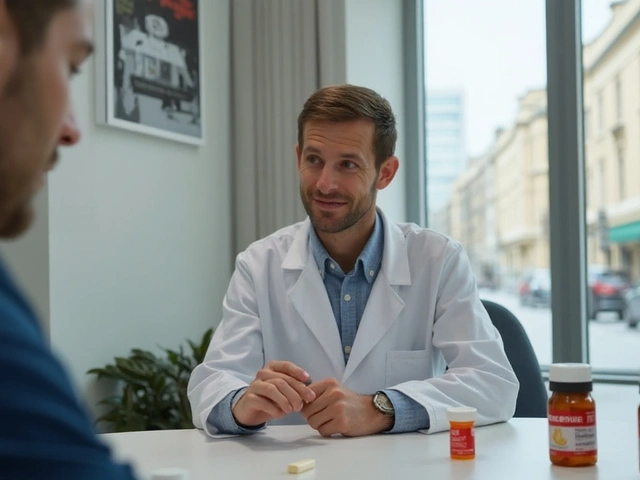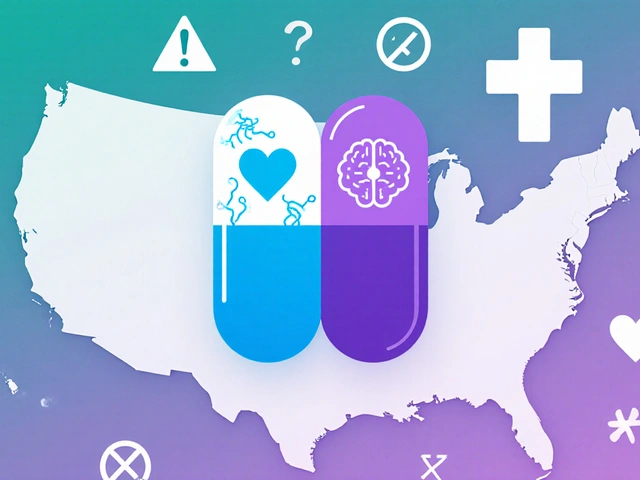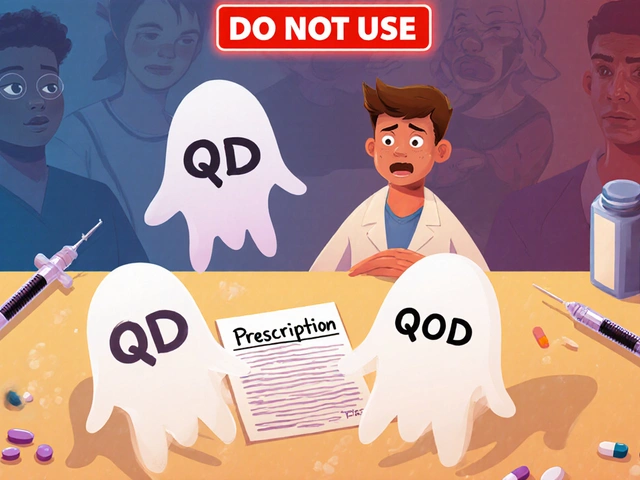Probiotics for Hepatic Encephalopathy: Treatment Insights
October 20 2025Addiction Treatment: Practical Guide to Options and What Works
If you're dealing with addiction or helping someone who is, you want clear options and real steps. Addiction is treatable. People recover with the right mix of medical care, therapy, and support. This page gives practical, no-nonsense guidance on common treatments so you can decide what to ask about next.
Medication-Assisted Treatment (MAT)
Medications can calm withdrawal, reduce cravings, and lower overdose risk. For opioid addiction, methadone and buprenorphine are the most used choices. They stabilize brain chemistry and let people focus on daily life and therapy. Naltrexone blocks opioid effects and works well after detox. For alcohol dependence, acamprosate and naltrexone help reduce drinking, while disulfiram causes unpleasant effects if alcohol is consumed. Nicotine replacement, bupropion, and varenicline help with tobacco dependence. Always start medications under medical supervision and check interactions with other prescriptions.
Therapy, Support, and Long-Term Recovery
Therapy works alongside meds or alone for some people. Cognitive behavioral therapy (CBT) helps change thinking and habits that feed addiction. Motivational interviewing boosts readiness to change, and contingency management rewards progress. Group therapies and 12-step fellowships offer peer support and routine. Residential programs give structure and 24/7 care for people at high risk or with complex needs. Outpatient programs let you keep work or family responsibilities while getting therapy.
Practical Steps to Find Treatment
Start with a health professional who knows addiction. Ask about detox options, medication choices, therapy types, and how long treatment usually lasts. Verify credentials: look for licensed counselors, certified addiction specialists, and clinics with clear protocols. If cost is a concern, ask about sliding scales, public programs, or online options. Emergency services or crisis lines are the right first call for dangerous withdrawal or suicidal thoughts.
What to Expect During Treatment
Early treatment focuses on safety: managing withdrawal and stabilizing mood and sleep. Then therapy teaches coping skills and relapse prevention. Expect setbacks; relapse is common but not a failure. Teams adjust plans when needed—changing meds or therapy style is normal. Family or partner involvement often helps.
Safety and Medication Advice
If buying meds online, use only verified pharmacies and keep prescriptions on file. Watch for dangerous mixes—combining sedatives with alcohol or opioids raises overdose risk. Tell your provider about all drugs you take, including supplements. If overdose occurs, call emergency services immediately and ask about naloxone for opioid users.
Next steps
Write down questions before appointments: treatment length, side effects, success rates, and support after program end. Recovery takes time but practical steps make it manageable. If you want, check our site for guides on medications, where to find verified pharmacies, and tips for travel or work while in treatment.
Common questions people ask: How long will treatment last? It varies—weeks to years. Will I be judged? Good programs treat you with respect and focus on safety. Can I work while in treatment? Many outpatient options let you keep a job. Ask providers about privacy laws and record handling.
Help is available when you're ready.
 7 Jan
7 Jan
Top Deals on Revia for Addiction Treatment in 2025
Revia, known for its active ingredient Naltrexone, is widely used in addiction treatment primarily for alcohol and opioid dependence. This article delves into the best deals for Revia, shedding light on its medical uses, potential side effects, and interactions with other medications. Learn about recommended dosages and find tips on how to safely purchase this medication online. Stay informed with our comprehensive guide to navigating Revia's benefits and considerations.
Read More...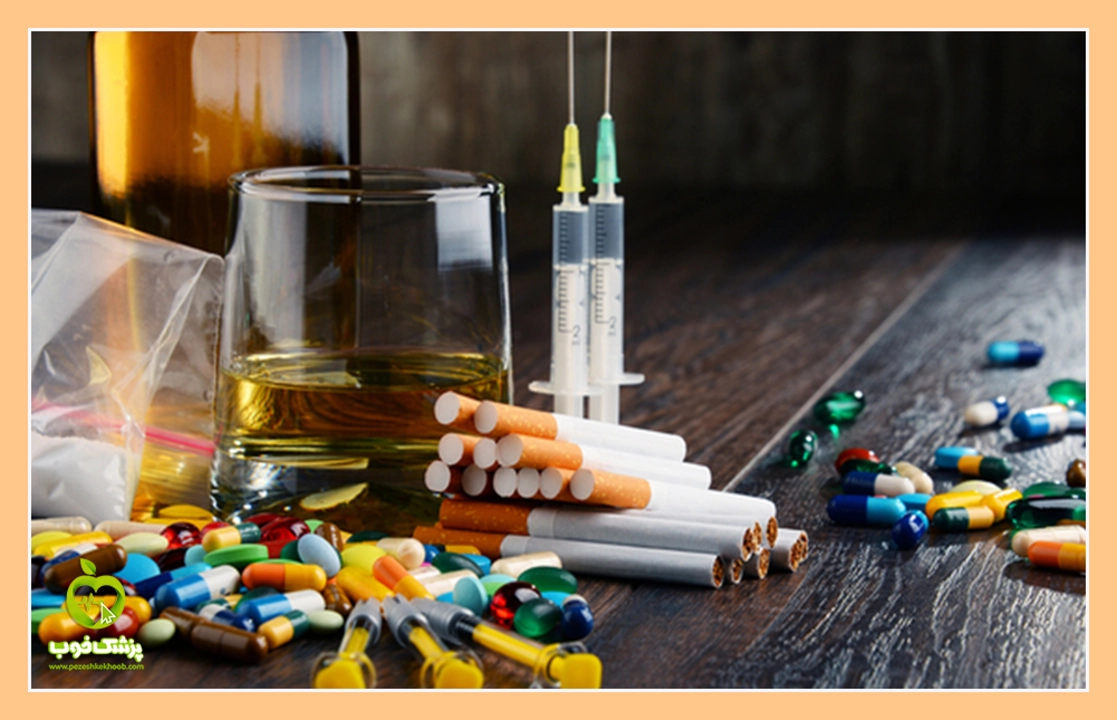 27 Apr
27 Apr
The Role of Buspirone in Treating Substance Abuse and Addiction
As a blogger, I've recently been researching the role of Buspirone in treating substance abuse and addiction. It turns out that this medication, primarily used for anxiety disorders, has shown promise in helping with addiction management. Some studies suggest that Buspirone can help reduce cravings and withdrawal symptoms, making it easier for individuals to stay on the path to recovery. Additionally, it has fewer side effects compared to other medications used for addiction treatment. Overall, Buspirone appears to be a promising option for those looking to overcome substance abuse, and I'm hopeful that more research will continue to highlight its benefits.
Read More...
